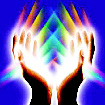Dr. Rajesh Bhola
India
Jan 25, 2013
India
Jan 25, 2013

The
body and mind can by no means be separated. It is distressing to see
young children who are disabled. They feel pain and inconvenience. I sit
with them and try to understand their minds. Many spastic children have
a deep sense that they should not have had to face this disability;
being ‘different’ causes them great unease. But they feel ashamed to
ask for help. Many of them sit alone soberly for hours, hooked to a toy, a calculator or television.
Disability has been around for a long time, but is conspicuously absent in the history books we read. The
history of disabled people is the history of being visually
conspicuous, while being politically and socially absent – erased from
all records and memory. Recovering disability’s lost or untold history
is important, to illuminate some of the darker corners of our past. We
will start seeing disability in a whole new light when we realise and
visualise what we could be, if our grandpa had been blind or disfigured.
Disability—as both a condition and concept— and the disabled are caught
up in a multitude of social and cultural contradictions: between
individuality and an objectified isolation; between medicine and the
law; between sainthood and stigma; between being stared at yet ignored;
between being labelled “special” as well as “deviant”; between presumed
privilege and disenfranchisement; between being too public yet too
personal; and between the discourses of rights and reasons.
For
rehabilitation, the disabled are wedged between schools and hospitals
for the better part of their life – between being either pupils or
patients. We are unable to provide a larger or richer social support
for people with disabilities. The lack of will on part of the families
and the government, to arrange for medicines, education, and
employment, would continue to wear down the disabled. In fact, the
families and the society think that the problem of disability can be
eliminated by removing the disabled from sight, from social spaces.
I have never forgotten the moments I used to spend with a child known as Sonu.
He would throw a ball, but could not pick it up off the floor. At this
point we both used to smile. We both recognised the so-human quality of
this situation. We both knew how difficult it was to accept disability,
and how the embarrassment of the condition was harder to cope with than
the problems of the condition itself. Sonu was abandoned one morning
by his parents. The child was a spastic and could not speak, could not
express anything. His parents never came back – and he was left all
alone. However, even in his aloneness we found him in communion with all
of us. He was rehabilitated in a shelter home. We lost him two years
ago. I was greatly pained – and wrote his obituary:
Sonu, 18, left for his heavenly abode at 3 am on Thursday, 20th January, 2011. His parents do not know that the journey of their young child is over.
Throughout his journey Sonu could not get a birth certificate
Dropped by parents one morning alongside the road, to his fate
It was an effort in Civil Hospital to get him a disability certificate
He has gone for a deep sleep
I woke up Dr. Arora in the wee hours of the morning to at least get Sonu a timely death
certificate
His afflictions are over; at least let him go for a quiet sleep
I weep, I wail. The tears don’t stop
He has gone for a deep sleep
Sonu, you woke me up forever
I will always remember you
Till my turn comes... to go to sleep.
Social arrangements also shape what is considered a disability.
A lack of social support encourages the perception that people with
severe disabilities are burdens, incapable of having rewarding
relationships. Resultantly, many such disabled persons live and die
unnoticed – like Sonu. Another young teenager, who is spastic, confides
in me that “Uncle, I try to do things that most others do, but my body does not obey my orders.” Is it his fault? Will we as a society just continue to perceive such persons as ‘burdens’?
We need a shift of consciousness. We need people in society to extend a hand to those who need help. We
cannot live an isolated life; we are indissolubly linked to the fates
of one another, and the world around us. We all need to be committed to a
new view, a non-alienating approach towards the disabled. Let the
disabled complete their journey on this planet in a barrier-free
environment, and let us help them come to terms with their personal
conditions and emotions, by including them in the social mainstream. υ
Dr. Rajesh Bhola is President of Spastic Society of Gurgaon and is working for the cause of children with
autism, cerebral palsy, mental retardation and multiple disabilities
for more than 20 years.
No comments:
Post a Comment